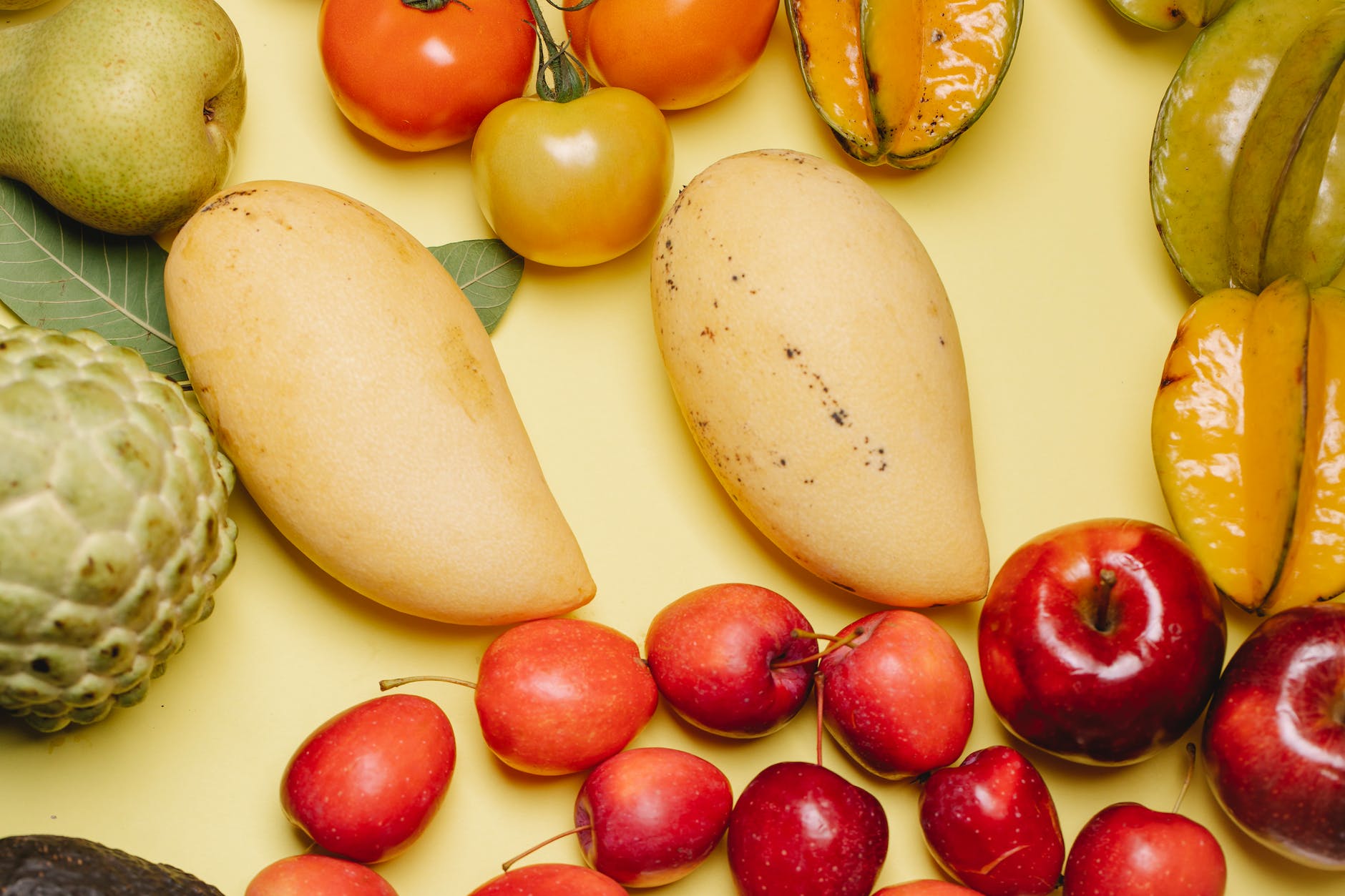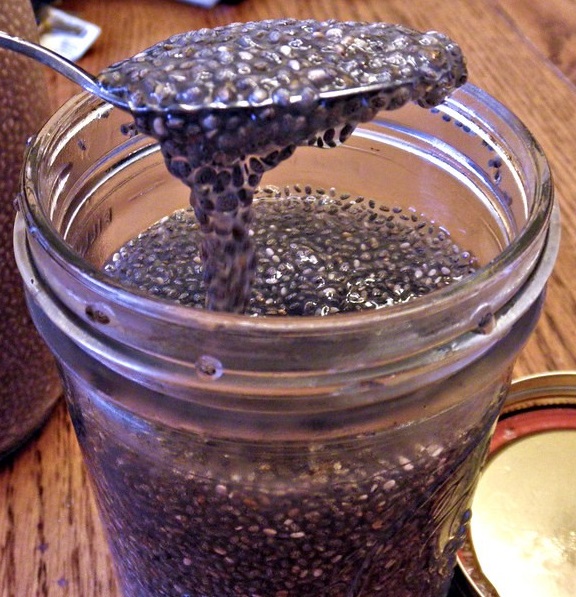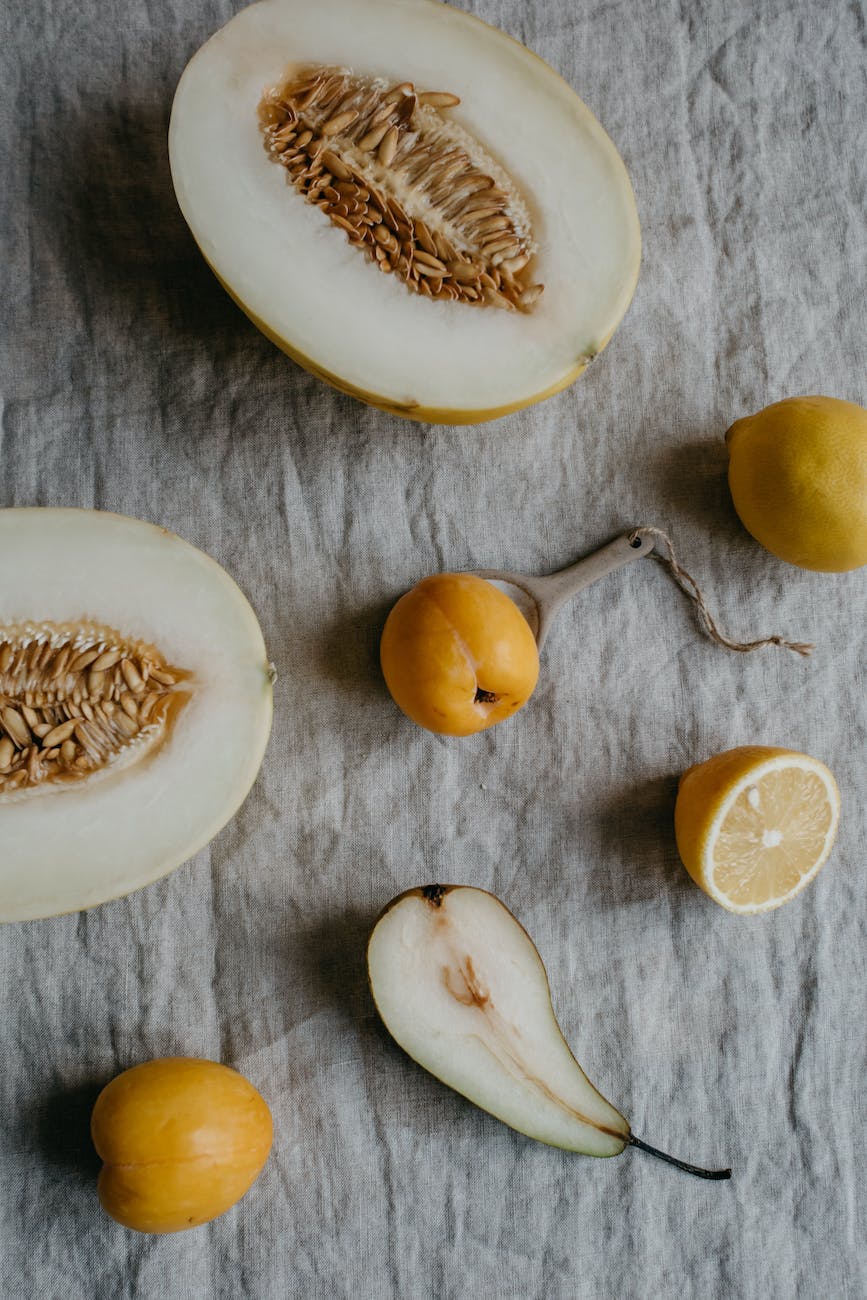
Acid reflux, also known as gastroesophageal reflux disease (GERD), is a common digestive disorder characterized by the backflow of stomach acid into the esophagus. Individuals with acid reflux often experience symptoms such as heartburn, regurgitation, and discomfort. While medications and lifestyle modifications play a significant role in managing acid reflux, making dietary changes is crucial for symptom relief. In this blog post, we will explore the foods to avoid to help alleviate acid reflux symptoms, promote a healthy digestive system, and improve overall well-being. Let’s dive into the world of acid reflux management through smart food choices! 🚫🔥🍽️
Understanding Acid Reflux and Trigger Foods: 💡🍽️🔥
Acid reflux occurs when the lower esophageal sphincter (LES) fails to close properly, allowing stomach acid to flow back into the esophagus. Certain foods and beverages can relax the LES or increase stomach acid production, leading to worsened symptoms. By identifying and avoiding these trigger foods, individuals with acid reflux can better manage their condition and reduce discomfort.
10 Foods to Avoid for Acid Reflux Relief: 🚫🔥🍽️
- Citrus Fruits and Juices: Citrus fruits, such as oranges, lemons, and grapefruits, as well as their juices, are highly acidic and can irritate the esophagus. The high acidity level can trigger heartburn and exacerbate acid reflux symptoms. Avoid consuming these fruits or opt for low-acid alternatives like melons and bananas.
- Tomatoes and Tomato-Based Products: Tomatoes are highly acidic and can trigger acid reflux symptoms. This includes tomato sauces, ketchup, and tomato-based dishes like pizza and pasta sauces. The acidity of tomatoes can irritate the esophagus and contribute to heartburn. Consider using non-tomato alternatives for flavoring, such as pesto or olive oil-based sauces.
- Spicy Foods: Spicy foods, including chili peppers, hot sauces, and spicy seasonings, can irritate the esophagus and increase stomach acid production. The capsaicin compound found in spicy foods can relax the LES, leading to acid reflux symptoms. Limit or avoid consuming spicy dishes to alleviate acid reflux symptoms.
- Fatty and Fried Foods: High-fat foods, such as fried foods, fatty cuts of meat, and full-fat dairy products, can slow down digestion and relax the LES, making acid reflux more likely. These foods take longer to digest, putting pressure on the LES and allowing stomach acid to flow back into the esophagus. Opt for lean proteins, low-fat dairy alternatives, and healthier cooking methods like baking or grilling.
- Chocolate: Unfortunately, chocolate contains both caffeine and a compound called theobromine, which can relax the LES and stimulate acid production. Additionally, chocolate is often high in fat, which further exacerbates acid reflux symptoms. Avoid or limit chocolate consumption to help manage acid reflux symptoms.
- Mint and Peppermint: While mint and peppermint flavors may seem soothing, they can actually relax the LES, leading to increased acid reflux symptoms. This includes mint-flavored candies, chewing gum, and mint-infused beverages. Choose non-mint alternatives for freshening breath or opt for herbal teas without peppermint.
- Carbonated and Caffeinated Beverages: Carbonated drinks, such as soda and sparkling water, can cause bloating and put pressure on the LES. The carbonation in these beverages can trigger acid reflux symptoms and increase discomfort. Additionally, beverages containing caffeine, like coffee, tea, and energy drinks, can stimulate acid production. Opt for herbal teas or decaffeinated alternatives to soothe your digestive system.
- Onions and Garlic: Onions and garlic are known to trigger acid reflux symptoms in many individuals. These aromatic vegetables can relax the LES and cause stomach acid to flow back into the esophagus. Consider reducing your intake of these ingredients or using milder alternatives like herbs and spices for flavoring.
- Alcohol: Alcohol can relax the LES and increase stomach acid production, leading to worsened acid reflux symptoms. Beer, wine, and spirits can all contribute to acid reflux. Limit or avoid alcohol consumption to manage acid reflux effectively. If you choose to drink, do so in moderation and consider low-acid alternatives like white wine or diluted cocktails.
- Processed and Acidic Foods: Processed foods, high-acidic foods (e.g., vinegar, pickles), and carbonated snack foods (e.g., chips) can exacerbate acid reflux symptoms. These foods often contain additives, preservatives, and artificial ingredients that can irritate the digestive system. Choose whole, unprocessed foods and opt for low-acid alternatives to support your digestive health.
Conclusion: 🚫🔥🍽️
In conclusion, managing acid reflux involves making smart food choices to minimize symptoms and promote a healthy digestive system. By avoiding trigger foods such as citrus fruits, tomatoes, spicy foods, fatty and fried foods, chocolate, mint, carbonated and caffeinated beverages, onions and garlic, alcohol, and processed or acidic foods, individuals with acid reflux can experience relief and improve their overall well-being. Remember, personalized dietary adjustments may be necessary, so it’s advisable to consult with a healthcare professional or a registered dietitian for personalized advice.
Soothing Acid Reflux: 10 Foods that Aid in Alleviating Symptoms 🥗🌿💆♀️
Acid reflux, also known as gastroesophageal reflux disease (GERD), can be a bothersome condition that causes discomfort and disrupts daily life. While there are certain foods to avoid to manage acid reflux, incorporating specific foods into your diet can help alleviate symptoms and promote digestive health. Here, we will explore the foods that can help ease acid reflux, including their soothing properties, digestive benefits, and potential to reduce inflammation. Let’s discover the power of food in soothing acid reflux and finding relief! 🥗🌿💆♀️
- Oatmeal: Oatmeal is a fantastic breakfast choice for individuals with acid reflux. It is a whole grain that is low in fat and high in fiber, which helps absorb stomach acid and promotes healthy digestion. Opt for plain oatmeal without added sugars or flavors for the best results.
- Ginger: Ginger has long been recognized for its digestive properties and can provide relief for acid reflux symptoms. It aids in reducing inflammation in the esophagus and helps calm the stomach. Enjoy ginger by sipping ginger tea or adding freshly grated ginger to your meals.
- Leafy Greens: Leafy greens such as spinach, kale, and Swiss chard are excellent choices for individuals with acid reflux. They are low in fat and rich in vitamins, minerals, and antioxidants that promote digestive health. Include leafy greens in salads, smoothies, or lightly sautéed as a side dish.
- Non-Citrus Fruits: While citrus fruits are often triggers for acid reflux, non-citrus fruits like melons, bananas, apples, and pears are generally well-tolerated. These fruits are low in acid and high in fiber, which aids digestion and helps prevent acid reflux symptoms.
- Gentle Proteins: Opt for lean proteins such as skinless poultry, fish, and tofu, as they are easier to digest compared to fatty meats. These protein sources provide necessary nutrients without contributing to excessive stomach acid production.
- Probiotic-Rich Foods: Probiotics are beneficial bacteria that promote a healthy gut. Consuming foods like yogurt, kefir, sauerkraut, and kimchi can help maintain a balanced gut microbiome, reducing the likelihood of acid reflux symptoms.
- Whole Grains: Incorporate whole grains like brown rice, quinoa, and whole-wheat bread into your meals. These complex carbohydrates provide essential nutrients and dietary fiber that aid in digestion and promote a healthy gut.
- Almonds: Almonds are a nutritious snack option for individuals with acid reflux. They are alkaline in nature and can help neutralize stomach acid. However, portion control is key, as too many almonds can exacerbate symptoms due to their high-fat content.
- Aloe Vera Juice: Aloe vera has anti-inflammatory properties and can help soothe the esophagus and digestive tract. Drinking aloe vera juice before meals may provide relief from acid reflux symptoms. Be sure to choose pure, organic aloe vera juice without added sugars or additives.
- Chamomile Tea: Chamomile tea has calming properties and can help relax the muscles of the esophagus. Sipping on chamomile tea after meals or before bedtime may help alleviate acid reflux symptoms and promote better sleep.
Incorporating Acid Reflux-Friendly Foods into Your Diet: 🥗🌿💆♀️
To reap the benefits of these foods and alleviate acid reflux symptoms, consider the following tips:
- Meal Planning: Plan your meals to include a variety of acid-reflux-friendly foods, ensuring a balance of nutrients and flavors.
- Food Journaling: Keep a food journal to track your diet and identify any triggers or patterns that worsen your acid reflux symptoms. This can help you make personalized adjustments to your diet.
- Mindful Eating: Practice mindful eating by chewing your food thoroughly, eating slowly, and paying attention to portion sizes. This can aid digestion and reduce the likelihood of acid reflux symptoms.
- Stay Hydrated: Drink plenty of water throughout the day to maintain hydration and support overall digestive health. Hydration helps in the production of saliva, which can help neutralize stomach acid.
Conclusion: 🥗🌿💆♀️
Incorporating acid-reflux-friendly foods into your diet can play a significant role in managing symptoms and promoting digestive health. By choosing oatmeal, ginger, leafy greens, non-citrus fruits, gentle proteins, probiotic-rich foods, whole grains, almonds, aloe vera juice, and chamomile tea, you can soothe acid reflux and find relief. Remember to personalize your approach by identifying your triggers and consulting with a healthcare professional or registered dietitian for personalized advice.
Acidic Foods: Exploring the 10 High-Acid Foods to Be Mindful Of 🍋🔥🥦:
The acidity of foods can have an impact on our health, particularly when it comes to digestive issues and maintaining a balanced pH level in the body. While some acidity is natural and necessary for certain bodily functions, consuming excessive amounts of highly acidic foods may contribute to acid reflux, tooth erosion, and other health concerns. In this section, we will explore the 10 most acidic foods to be mindful of, their potential effects on health, and tips for incorporating them in moderation. Let’s delve into the world of high-acid foods and learn how to maintain a balanced diet! 🍋🔥🥦
Understanding Acidic Foods and pH Levels: 💡🍋🔬
The pH scale measures the acidity or alkalinity of substances, ranging from 0 to 14. A pH of 7 is considered neutral, while values below 7 are acidic, and values above 7 are alkaline. Our bodies strive to maintain a slightly alkaline pH for optimal functioning, but certain foods can temporarily impact this balance. It’s essential to be aware of the most acidic foods and their potential effects on our health.
The 10 Most Acidic Foods: 🍋🔥🥦
- Citrus Fruits: Citrus fruits, such as lemons, limes, oranges, and grapefruits, are highly acidic due to their high levels of citric acid. While they offer various health benefits, including vitamin C and antioxidants, consuming excessive amounts or highly concentrated citrus juices can contribute to acid reflux and enamel erosion.
- Tomatoes: Tomatoes are another acidic food due to their malic and citric acid content. While tomatoes are nutritious and offer valuable antioxidants, they can be problematic for individuals with acid reflux or sensitive stomachs. Cooking tomatoes can reduce their acidity, making them more tolerable for some individuals.
- Pickles: Pickles, particularly those made with vinegar, are highly acidic. The pickling process involves soaking vegetables in an acidic solution, often vinegar, which imparts a tangy flavor but increases the acidity of the food. Moderation is key when consuming pickles, especially for individuals prone to acid reflux or gastrointestinal issues.
- Sodas and Carbonated Drinks: Carbonated drinks, including soda and sparkling water, are highly acidic due to the carbonation process. They can erode tooth enamel, contribute to acid reflux symptoms, and disrupt the body’s pH balance. Limit consumption of these beverages and opt for healthier alternatives like water or herbal tea.
- Alcohol: Many alcoholic beverages are acidic, primarily due to their fermentation process. Wine, beer, and spirits can contribute to acid reflux, irritate the stomach lining, and affect oral health. Moderation is crucial when consuming alcohol, and opting for less acidic options like light beers or lower-acidity wines can be beneficial.
- Coffee: Coffee, particularly dark roasted varieties, is acidic and can stimulate stomach acid production. It can contribute to acid reflux symptoms, heartburn, and digestive discomfort in susceptible individuals. Consider opting for lower-acid coffee options or herbal alternatives like tea for a gentler choice.
- Processed Meats: Processed meats, including deli meats, sausages, and bacon, are typically high in acidity. These meats undergo curing processes that involve additives and preservatives, making them more acidic. Limit intake of processed meats and prioritize lean, unprocessed protein sources.
- Soft Drinks: Soft drinks, including colas and other sugary beverages, are highly acidic due to the combination of carbonation and added sugars. The high acidity can contribute to tooth decay, acid reflux, and other digestive issues. Opt for healthier alternatives like infused water or natural fruit juices with no added sugars.
- Refined Grains: Refined grains, such as white bread, white rice, and pasta, are considered acidic. During processing, these grains lose essential nutrients and fiber, resulting in an imbalanced acid-to-alkaline ratio in the body. Choose whole grains for a healthier, alkaline option.
- Processed Snack Foods: Many processed snack foods, such as chips, crackers, and cookies, contain artificial additives, preservatives, and flavorings that contribute to acidity in the body. These foods are often high in refined sugars and unhealthy fats, further disrupting the body’s pH balance. Opt for healthier snack options like fresh fruits, nuts, or homemade alternatives.
Incorporating Acidic Foods Mindfully: 🍋🔥🥦
While these foods are considered acidic, it’s important to note that many of them offer nutritional benefits and can be enjoyed in moderation. Here are some tips for incorporating acidic foods mindfully:
- Portion Control: Be mindful of portion sizes and avoid excessive consumption of highly acidic foods.
- Balance and Variety: Aim for a balanced diet that includes a variety of foods from different food groups. Include alkaline-forming foods like fruits, vegetables, and whole grains to counterbalance the acidity.
- Timing: Consider the timing of acidic food consumption. Consuming them with other foods or during a meal can help mitigate their effects on the body.
- Oral Care: Maintain good oral hygiene practices, including brushing your teeth after consuming acidic foods and beverages to minimize the risk of enamel erosion.
Conclusion: 🍋🔥🥦
While some foods are naturally acidic, it’s crucial to be mindful of their consumption and their potential effects on our health. By being aware of the most acidic foods and incorporating them in moderation, we can maintain a balanced diet that promotes overall well-being. Remember, balance, variety, and portion control are key when navigating the acidity of certain foods.
What kills Acid Reflux Naturally? 🌱🔥💆♀️
Dealing with acid reflux can be uncomfortable and disruptive to daily life. While medications can provide relief, some individuals prefer natural remedies to manage their symptoms. In this section, we will explore natural methods that can help alleviate acid reflux and provide relief, focusing on lifestyle modifications, dietary adjustments, and herbal remedies. Let’s delve into the world of natural solutions and discover what can effectively combat acid reflux! 🌱🔥💆♀️
- Lifestyle Modifications:
a) Maintain a Healthy Weight: Excess weight can contribute to the occurrence and severity of acid reflux symptoms. By maintaining a healthy weight through regular exercise and a balanced diet, you can reduce the pressure on your stomach and minimize the likelihood of acid reflux.
b) Elevate the Head of Your Bed: Elevating the head of your bed by 6-8 inches can help prevent stomach acid from flowing back into the esophagus while you sleep. This can be achieved by using bed risers or placing a wedge-shaped pillow under the upper body.
c) Avoid Tight Clothing: Tight clothing, especially around the waist, can put pressure on the abdomen and worsen acid reflux symptoms. Opt for loose-fitting, comfortable clothing to avoid unnecessary discomfort.
d) Practice Stress Management: Stress can exacerbate acid reflux symptoms. Engage in stress-reducing activities such as meditation, deep breathing exercises, yoga, or hobbies to promote relaxation and reduce the likelihood of acid reflux flare-ups.
- Dietary Adjustments:
a) Consume Smaller, Frequent Meals: Eating smaller meals throughout the day instead of large meals can help prevent excessive stomach distension and reduce acid reflux symptoms. Aim for five to six smaller meals instead of three large ones.
b) Identify Trigger Foods: Keep a food journal to identify specific foods that trigger your acid reflux symptoms. Common triggers include citrus fruits, tomatoes, spicy foods, fatty and fried foods, chocolate, caffeine, and carbonated beverages. Avoid or limit the consumption of these foods to manage acid reflux naturally.
c) Chew Thoroughly and Eat Slowly: Chewing your food thoroughly and eating slowly promotes proper digestion and reduces the likelihood of acid reflux symptoms. Take your time while eating and savor each bite.
d) Choose Low-Acidic Foods: Incorporate more alkaline foods into your diet, such as leafy greens, non-citrus fruits, whole grains, lean proteins, and healthy fats. These foods help balance the pH levels in your body and reduce the acidity that can trigger acid reflux.
- Herbal Remedies:
a) Ginger: Ginger has natural anti-inflammatory properties and can help soothe the digestive system. Consuming ginger tea or adding freshly grated ginger to your meals can aid in reducing acid reflux symptoms.
b) Aloe Vera Juice: Aloe vera juice has a cooling effect on the esophagus and can help soothe irritation caused by acid reflux. Drink a small amount of pure, organic aloe vera juice before meals to alleviate symptoms.
c) Marshmallow Root: Marshmallow root has mucilage properties that can form a protective layer in the esophagus and stomach, reducing the impact of stomach acid. Consider drinking marshmallow root tea to help soothe acid reflux symptoms.
d) Chamomile Tea: Chamomile tea has calming properties and can help reduce inflammation in the digestive system. Sipping on chamomile tea after meals or before bedtime can aid in relieving acid reflux symptoms.
Conclusion: 🌱🔥💆♀️
While medications are commonly used to manage acid reflux, natural remedies can also be effective in alleviating symptoms. By implementing lifestyle modifications, making dietary adjustments, and incorporating herbal remedies like ginger, aloe vera juice, marshmallow root, and chamomile tea, you can naturally combat acid reflux and find relief. Remember, it’s essential to listen to your body, make individualized adjustments, and consult with a healthcare professional if your symptoms persist or worsen.














